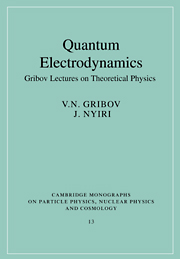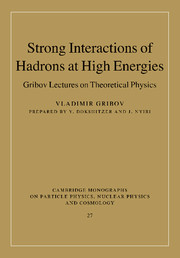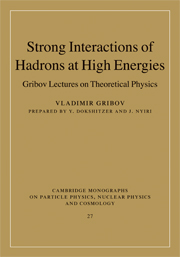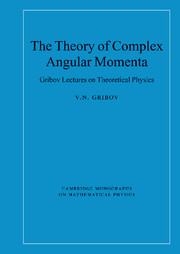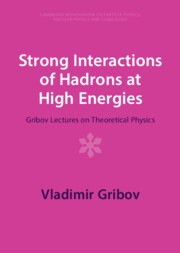Quantum Electrodynamics
Based on lectures given by the highly original and distinguished physicist V.N. Gribov, this book provides an accessible introduction to quantum electrodynamics. It presents the theory of quantum electrodynamics in the shortest and clearest way for applied use. A distinctive feature of Gribov's approach is the systematic use of the Green function method, which allows a straightforward generalization to the cases of strong and weak interactions. The book starts with an introduction that uses the basics of quantum mechanics to gently introduce the reader into the world of propagation functions and particle interactions. The following chapter then focuses on spin 1/2 particles. The text goes on to discuss symmetries, the CPT theorem, causality, and unitarity followed by a detailed presentation of renormalization theory. A final chapter looks at difficulties with the theory and possible routes to their resolution. This book should become an indispensable part of any physical library, graduate students will value it as a helpful companion and experts will find in it many original ideas and deep insights.
- Simple and intuitive introduction to the topic
- Based on lectures by V. N. Gribov, one of the most distinguished physicists in particle physics
- Unique in its approach - there are no books with similar ideas or descriptions of the subject
Reviews & endorsements
' … it is valuable as a resource, and the ready access it allows to QED applications might also make it useful for fourth-year physics undergraduates who often have the option of an introductory field theory course.' Contemporary Physics
Product details
July 2005Paperback
9780521675697
284 pages
254 × 178 × 20 mm
0.647kg
286 b/w illus.
Available
Table of Contents
- 1. Particles and their interactions in relativistic quantum mechanics
- 2. Particles with spin 1/2. Basic quantum electrodynamic processes
- 3. General properties of the scattering amplitude
- 4. Renormalization. Radiative corrections
- 5. Difficulties of quantum electrodynamics.

